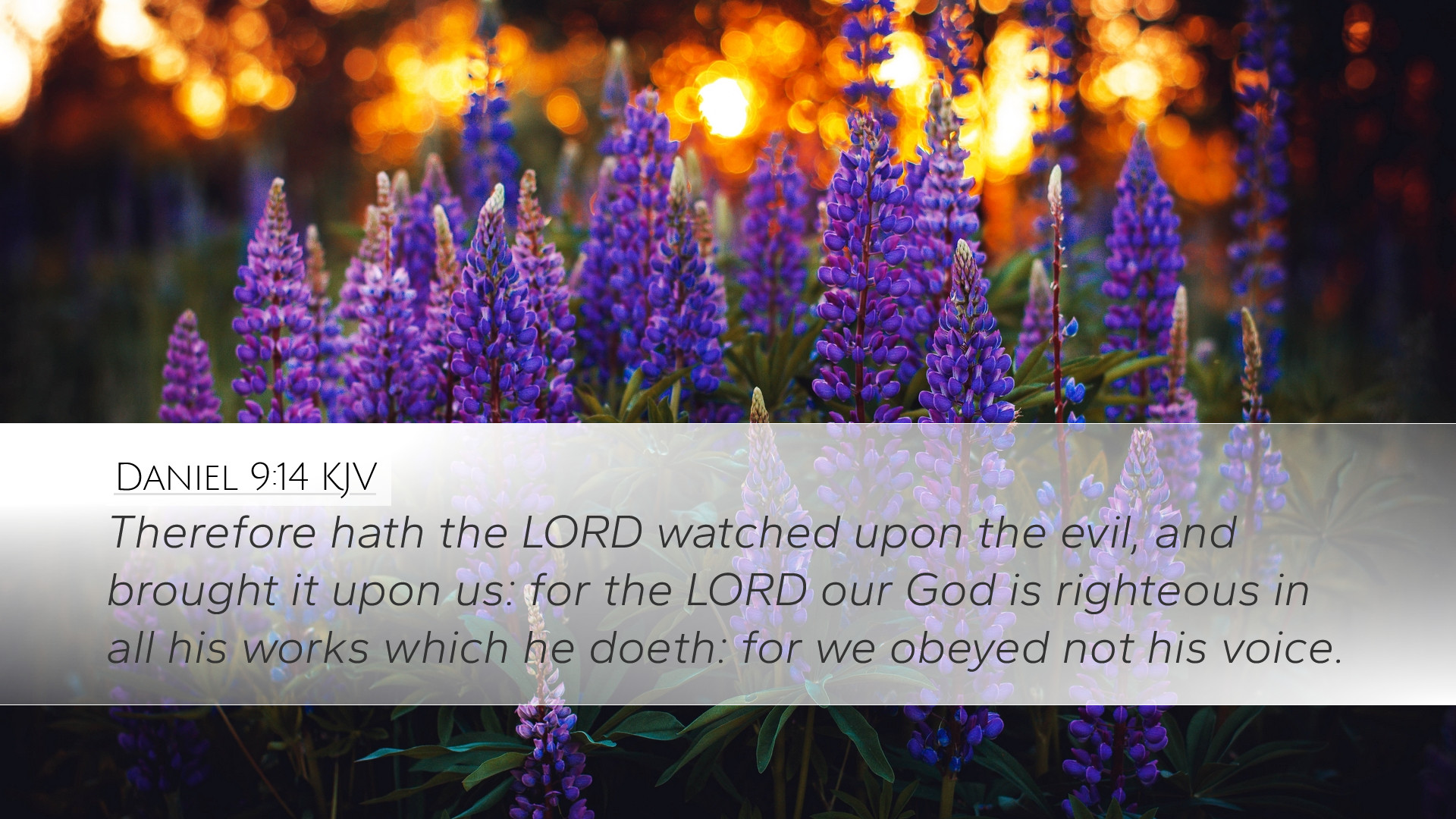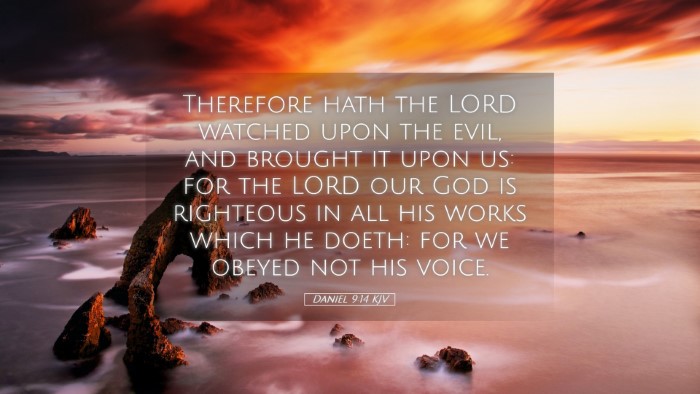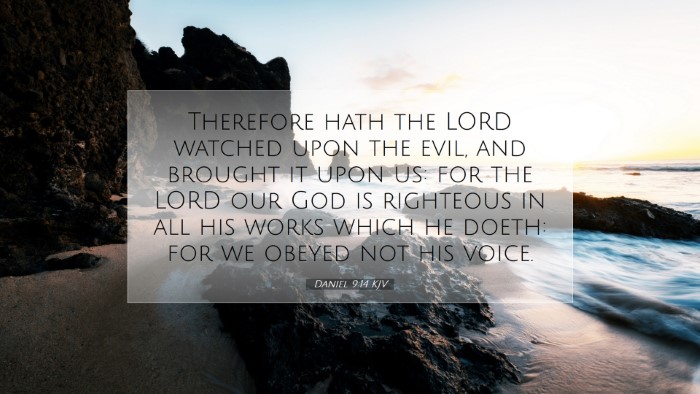Commentary on Daniel 9:14
Verse Text: "Therefore hath the LORD watched upon the evil, and brought it upon us: for the LORD our God is righteous in all his works which he doeth: for we obeyed not his voice."
Overview
Daniel 9:14 stands as a pivotal verse in the prayer of confession and supplication that Daniel presents to God on behalf of the people of Israel. This verse encapsulates key themes of divine justice, human disobedience, and the righteous character of God. It reflects on Israel's covenant relationship with God and the implications of their transgressions.
Divine Vigilance and Justice
Daniel acknowledges that the Lord has "watched upon the evil." Here, the watchfulness of God is highlighted, suggesting that God is always aware of human actions and their consequences. As noted by Matthew Henry, God's providence is active, and nothing escapes His observation. He does not turn a blind eye to the moral decay of His people. Instead, He actively responds to their iniquity, which demonstrates His justice.
The Sovereignty of God
Albert Barnes comments on the phrase "brought it upon us," emphasizing that it is God who orchestrates events according to His sovereign will. The calamities that befell Israel are seen as a result of divine judgment for their unfaithfulness. This aligns with the theological premise that God uses even difficult circumstances to discipline His people and call them back to righteousness.
The Righteousness of God
The declaration that "the LORD our God is righteous in all his works" serves as a profound affirmation of God’s nature. As Adam Clarke points out, the righteousness of God entails that all His actions are just and appropriate. The calamity that has come upon Israel is not indicative of God's failure, but of His faithful adherence to His covenant priorities. The righteousness of God assures believers that He always acts in alignment with His holy character.
Human Disobedience
The acknowledgment "for we obeyed not his voice" points to the root cause of the calamities faced by Israel — human disobedience. Daniel's prayer reflects a communal recognition of sin, which is vital for true repentance. This collective admission of guilt is echoed in the public confessions of other leaders in Scripture, marking the importance of recognizing wrongdoing as a precursor to seeking restoration with God.
Implications for Leadership
For pastors and church leaders, this verse illustrates the importance of spiritual vigilance and accountability. Just as Daniel intercedes for his people, pastors are called to lead their congregations with an awareness of sin and a commitment to righteousness. The acknowledgment of God’s sovereignty and righteousness provides a foundation for preaching repentance and seeking restoration.
The Role of Confession
Daniel’s model prayer encourages believers to engage in confession as a pivotal aspect of their relationship with God. By confessing their sins and recognizing His righteous judgment, believers can cultivate a deeper intimacy with God. This theme resonates through both the Old Testament and New Testament, where confession is seen as essential to receiving God’s grace and forgiveness.
Conclusion
In summary, Daniel 9:14 encapsulates the profound truths of sin, divine judgment, and God's unchanging righteousness. For theologians and Bible scholars, this verse serves as a powerful reminder of the covenant relationship that exists between God and His people, characterized by both divine oversight and human responsibility. Understanding the implications of this verse can lead to a deeper appreciation of God’s character and His call for His people to live in obedience to His voice.
Reflection Questions
- How can we demonstrate an understanding of God's righteousness in our contemporary context?
- What are the practical steps we can take to lead our communities towards repentance?
- In what ways can we actively participate in God's redemptive work in our lives and surroundings?
Further Study
Consider exploring related texts such as:
- 2 Chronicles 7:14 - The call to humility, prayer, and seeking God's face.
- Lamentations 3:22-23 - God’s faithfulness amid judgment.
- Hebrews 12:5-11 - The concept of divine discipline as a sign of sonship.


